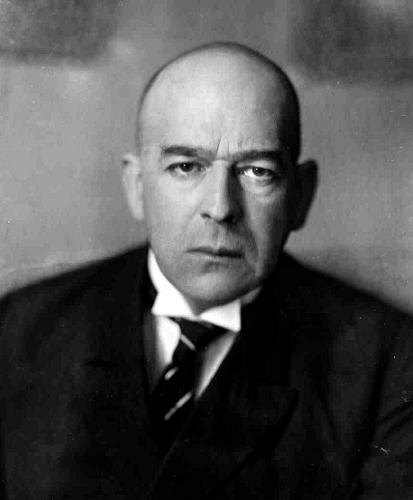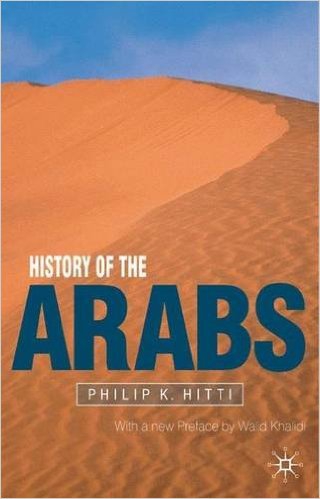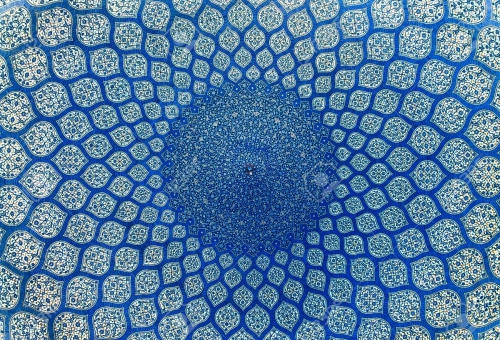Western academics and media-types write a lot of drivel about Islam. Part of the problem is there is a dearth of good information, and a bounty of superficial, politically self-serving garbage. But the real problem is misplaced emphasis. Western experts and commenters are used to thinking of history in simplistic terms--as the story of human progress. This model might be a good fit for Euro-American history, it is at least workable. But the progressive model falls apart when applied to the history of Islam. Islam’s heights seem to correspond to the West’s depths, and vice-versa. The “Progress” model causes Westerners to ask the wrong questions about Islamic history. “What went wrong?” “Why has the Middle East been so beset by violence?” “When will Islam adopt modern political and ethical principles?”
This misguided criticism has two faces--liberal and reactionary. Both sides share a simplistic view of history--that millennia-long, worldwide advance of the human spirit. But each side approaches its subject with different motives. Liberals, who dominate public discourse on the subject (surprise), assume the intrinsic goodness of all people. “Islam is peace” (eye roll). They feel good when they can cite examples of seemingly precocious modernism, such as early Muslim rulers’ tolerance (in the strictest sense) for religious minorities. It makes them feel good to contrast these anecdotes with the supposedly unrelenting fanaticism of Euro-Americans throughout the Middle Ages and the Early Modern period, the 19th and 20th centuries, up to and including last week. This rosy, Islamophilic picture is not really about Islam. It is just another stick with which to beat guilt into the Euro-American historical conscience.
The liberal position, while dominant, does not go unchallenged. On the other side are the reactionaries. They are “reactionaries” because they have no real position on Islam, they only know that the liberals are wrong, and reflexively counterattack. Theirs is a form of hypercriticism, given to denying long-established facts and trends of Islamic history with little or no justification other than to refute the Islamophiles. Given the current situation in the West, their excesses are understandable. But the reactionaries’ zeal leads them to stake out indefensible positions. Many of them are have ulterior motives--some are pro-Jewish fanatics or apologists for imperialism, others are democratic ideologues. But they share a defect. They lack a healthy, Faustian drive to pursue universal Truth--whether we like its conclusions or not.
Both approaches fail for two reasons. First, neither affords its subject the proper attitude of “sympathetic criticism.” The student must devote himself to understanding a culture on its own terms--learning its languages, reading its history and literature--all the while imagining things from its perspective. Once he has done this, he can render judgment on its ethics, its cultural attainments, and its overall importance to history. This was the approach of the great orientalists of the late 19th and early 20th century. They devoted tremendous intellectual effort to comprehending Islamic civilization, yet they were unafraid to pass judgment on its shortcomings. The liberals have no aptitude for criticism, the reactionaries have none for sympathy.
Second, the liberals and reactionaries neglect the questions of philosophical history. It is from this oversight that they fall into their assumption of perpetual historical progress. But there is a better way. One hundred years ago, Oswald Spengler reframed the discussion of history by tearing down an idea of progress (at least as it is commonly understood). His “Copernican revolution” in historical thought worked wonders for the study of Classical civilization and Europe, but it would prove even more effective for understanding the meaning of Middle Eastern history. Spengler shifted the emphasis away from time and toward Cultures. Following Spengler, we can understand how meaningless most of the questions posed by conventional commenters are, and begin to see Islam for what it really is.

The Magian Reformation
Spengler rejected the conventional historical focus on religions and polities. He saw these as merely superficial expressions of something deeper--the Culture. Cultures, in Spengler’s scheme, are a complex of peoples who share a world-outlook. This outlook--the spirit of a Culture--drives it to produce or adapt a religion. “Religion” is the outward expression of the world-outlook and includes such things as prayer rituals, religious architecture, calligraphy, and sculpture. For example, while Euro-Americans and Korean evangelicals may both be “Christians,” they do not belong to the same Culture, because their world-outlooks differ so drastically, despite their notionally common religion. A present-day American protestant has more in common, spiritually, with a 9th-century Norse pagan than with a modern-day Korean convert, despite professing the same doctrines. Cultures are the basic unit by which to analyze history.
Islam is part of the “Magian” Culture. In his Decline of the West, Spengler defines the Magian Culture as comprising the Muslim Arabs, but also many pre-Islamic Middle Eastern groups such as the Babylonian Jews, the Zoroastrians, the Coptic and Syriac Christians, as well as syncretic/heretical groups like the Manichaeans. It arose around the time of Christ and lasted until the 12th century when the anti-rationalist thinker Al-Ghazali dealt the deathblow to Magian philosophical speculation. All of subsequent Magian history was, in Spengler’s view, “civilization”--grandiose, bombastic, imperial, but sterile. No new philosophical or religious ideas could arise from the Magian world outlook. The culture had run its course.
So the birth of Islam does not represent the foundation of a new religion. It was, rather, a revolution in Magian religious thought. As such, it is analogous to the Reformation in Western history. Like Luther, Muhammad preached a puritanical systematization of earlier currents in the spiritual thought of his Culture. Muhammad and Luther were both anti-clerical, iconoclastic reformers who exhorted their adherents to build a more personal relationship with God. They both made the scripture accessible to the masses--Luther by translating the Bible into the vernacular, Muhammad by “receiving revelations” in easily memorized rhymed prose. After their deaths, their Cultures were unified the culture by marginalizing the earlier creeds and, at the same time, quickly spawning an array of heresies. The puritanical movements unleashed a storm, driving the post-reformation Europeans and post-Islam Magians to conquer half the world in a fanatical outburst of religious fervor--compare that to the religious and colonial wars of Europe in the 16th and 17th centuries.
Both movements, to a large degree, cleansed their cultures of foreign influence. Hellenistic influence on the Middle East, while not wiped out, was severely reduced in the first centuries of Islam. The Greek language, long the lingua franca of the Eastern Mediterranean, died out in Egypt and Syria, and later in Anatolia. To use Spengler’s term, Islam ended the Hellenistic pseudomorphosis (false-development) of early Magian Culture, allowing it to come into its own. Likewise after Luther, Northern Europe was free to work out its own cultural development. Free of Rome, the North underwent its own Renaissance. Florence and Rome were replaced by Nuremberg, Rotterdam, and Weimar. The Italian composers of the baroque were, by degrees, superseded by the likes of Bach and Handel. Thus Muhammad is not an Islamic Jesus, but a Luther. His movement, Islam, is a puritanical systematization of earlier currents in the Magian spirit.
Islam needs a Reformation
All this flies in the face of the conventional wisdom. Lacking any deeper insight into the place of Islam in history, the Mass-Media has been promoting a meme, “Islam needs a Reformation” eg: (WSJ and HuffPo). It makes sense superficially. Based on the conventional historical assumptions, one would compare Muhammad to Jesus as founders of world-religions. It follows then that Islam, having gotten a late start, is due for a reformation. After all, it’s been 14 centuries since Muhammad fled to Medina, and about the same duration separates Jesus from Martin Luther. The pre-Reformation Church superficially resembles current-day Islam.
But with a deeper understanding of history, comparing Jesus to Muhammad is preposterous. In contrasting the current state of the West and the Middle East, it would be ridiculous to set the two up as analogs. Jesus no longer matters to Faustian man. When the decadent West looks for myths and heroes, it looks for world-denying saints of Tolerance and Progress. New heroes must spring up or be manufactured--MLK and Gandhi, Anne Frank and Mother Theresa. Jesus would seem to fit the mold, but he is too bound-up in the popular imagination with the distant past. And in the popular imagination, History is Progress, therefore the farther back you go, the more evil everything is. But the West has absolutely no need for heroic men-of-the-world like Luther, so his place in our history is undervalued.
 But the reborn Islamic fury, much pondered in the West, is not the necessary outcome of Islam’s doctrines. That the Middle East is still populated by “Muslims” is of less consequence than its stage of historical development. Islam is in winter. For centuries following the Crusades the Arabs and Persians were inactive. Islam’s last great conquests were not carried out by these “core-Magians,” but by the Berbers, Turks, and Mughals. And these imperial peoples could only prolong the agony of Magian decline. After c. 1500, the Magians had no meaningful history. They have endured wars and changes of dynasty, but no revolutions of thought or spirit. Classic histories of Middle East recognized this historical void--in over 750 pages of The History of the Arabs, the Lebanese Christian scholar Philip Hitti devoted less than 100 to anything after the 13th century.
But the reborn Islamic fury, much pondered in the West, is not the necessary outcome of Islam’s doctrines. That the Middle East is still populated by “Muslims” is of less consequence than its stage of historical development. Islam is in winter. For centuries following the Crusades the Arabs and Persians were inactive. Islam’s last great conquests were not carried out by these “core-Magians,” but by the Berbers, Turks, and Mughals. And these imperial peoples could only prolong the agony of Magian decline. After c. 1500, the Magians had no meaningful history. They have endured wars and changes of dynasty, but no revolutions of thought or spirit. Classic histories of Middle East recognized this historical void--in over 750 pages of The History of the Arabs, the Lebanese Christian scholar Philip Hitti devoted less than 100 to anything after the 13th century.
What’s to be done
The liberal and reactionary views of Islam are shallow and polemic. They are worthless as history. Neither framework allows us to understand the relationship between Magian culture and ours because the Magians are actually ahead of us. Their decline did not begin in the 19th century, but in the 11th. Their reformation did not happen in the 16th century, but in the 7th.
Where are we now? Today’s situation resembles the era of the Crusades, with the roles reversed. Like Islam of the 1100s, the West has passed its peak. Our spirit is dying, our philosophy and art have ossified. We find ourselves beset by external enemies, barely able to summon the strength for our own preservation. Like Europe of the 1100s, the Middle East is the matrix of peoples--young, vigorous and aggressive.
What can we look forward to? If the West follows the same trajectory as Islam did after 1100, we are doomed. While Islam expelled the Crusaders and launched counteroffensives on its Eastern and Western frontiers, it only did so because it received infusions of fresh blood semi-civilized converts. These barbarian peoples adopted the outward forms of Magian Culture--Islam--but were unable to revive its spiritual vigor.
So contrary to the common view, the West does not face an ancient religious enemy. Islam died centuries ago--any invocation of its doctrines is now entirely superficial. The Arabs have for centuries wallowed in spiritual decrepitude. The “refugees” are not driven on by religious fervor, but simple greed, lust, and envy. They are not so much religious fanatics as they are zombies. Soulless and decrepit, they swarm to history’s last civilization. Do we still have the spirit to do what needs to be done?
Holland, Tom. In the Shadow of the Sword: The Birth of Islam and the Rise of the Global Arab Empire. New York: Doubleday, 2012.
Spengler, Oswald, and Charles Francis Atkinson. The Decline of the West: Perspectives of World-history. Vol. 2. New York: Alfred A. Knopf, 1957.





 del.icio.us
del.icio.us
 Digg
Digg